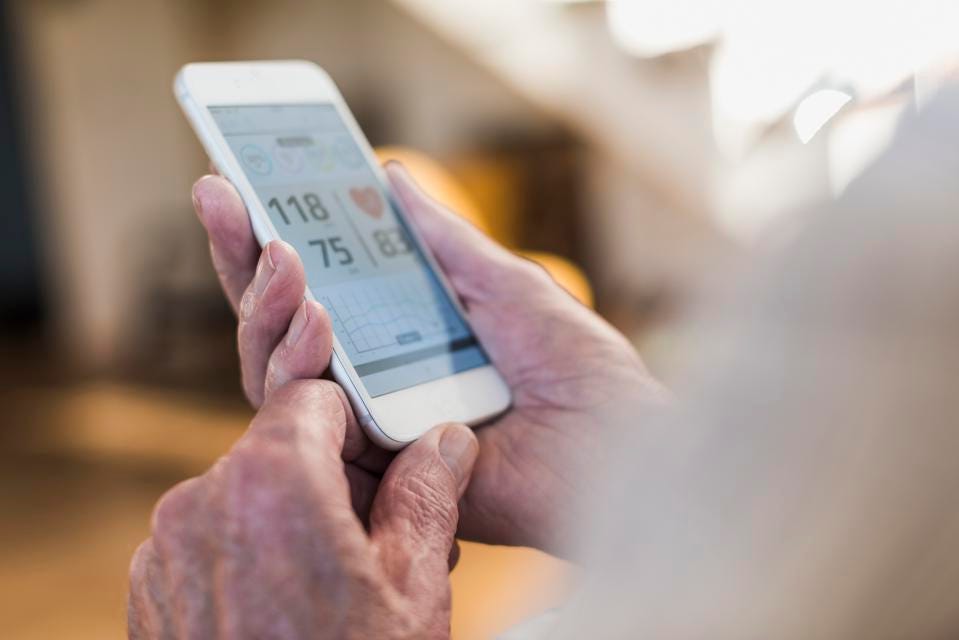The AMA has adopted a wide-ranging set of policies designed to help integrate the burgeoning field of mobile health applications and devices—dubbed mHealth—into clinical practice.
More than 165,000 mHealth apps are available to patients, according to a September 2015 report from the IMS Institute for Healthcare Informatics. Yet such is the variability in quality in the fast-growing mHealth space that if you’ve seen one mHealth app, then you’ve seen one mHealth app.
“While some mobile apps and devices are subject to FDA regulation, others are not, and do not undergo rigorous evaluation before deployment for general use, which raises quality and patient safety concerns,” says an AMA Council on Medical Service(CMS) report adopted by the House of Delegates at the 2016 Interim Meeting in Orlando, Fla.
“Without ensuring that there is strong and sufficient evidence that provides clinical validation to mHealth apps and associated devices, trackers and sensors,” the CMS report adds, “physicians will not fully integrate mHealth apps into their practices. More investment is needed in expanding the evidence base necessary to show the accuracy, effectiveness, safety and security of mHealth apps.”
In its action, the AMA says that principles are needed to guide insurance coverage and payment decisions for mHealth apps, devices, trackers and sensors for use by patients, physicians and other health professionals. The principles state that such technologies should:
- Support the establishment or continuation of a valid patient-physician relationship
- Have a high-quality clinical evidence base to support their use in order to ensure mHealth app safety and effectiveness
- Follow evidence-based practice guidelines, especially those developed and produced by national medical specialty societies and based on systematic reviews, to ensure patient safety, quality of care and positive health outcomes
- Support care delivery that is patient-centered, promotes care coordination and facilitates team-based communication
- Support data portability and interoperability in order to promote care coordination through medical home and accountable care models
- Abide by state licensure laws and state medical practice laws and requirements in the state in which the patient receives services facilitated by the app
- Require that physicians and other health professionals delivering services through the app be licensed in the state where the patient receives services or be providing these services as otherwise authorized by that state’s medical board
- Ensure that the delivery of any services via the app be consistent with state scope of practice laws
The AMA also is calling for mHealth technologies to abide by laws addressing the privacy and security of patients’ medical information. The new policy encourages the mHealth industry and others to “conduct industrywide outreach and provide necessary educational materials” to patients to raise awareness of how the privacy and security of mHealth apps can vary, and how patient data may be collected and used.
Delegates also voted to encourage the mHealth community to work with the AMA and other physician organizations to develop principles on app transparency that would include providing a “standard privacy notice to patients if apps collect, store and/or transmit protected health information.”
Legal risks for physicians?
The AMA policy says physicians should consult with their attorneys if they are unsure whether an mHealth app meets Health Insurance Portability and Accountability Act standards. Doctors also should ask about any applicable state privacy and security laws, the policy says.
Delegates directed the AMA to “assess the feasibility of state and federal legislation” and other options to “mitigate the physicians’ potential risk of liability from the use or recommendation of mHealth apps.” The AMA also will examine the potential liability risks to physicians for using, recommending or prescribing mHealth apps, including risk under federal and state medical liability, privacy and security laws.
“The new AMA principles aim to foster the integration of digital health innovations into clinical practice by promoting coverage and payment policies that are contingent upon whether mHealth apps and related devices are evidence-based, validated, interoperable and actionable,” AMA Immediate Past President Steven J. Stack, MD, said in a statement. “It is essential for mHealth apps support care delivery that is patient-centered, promotes care coordination and facilitates team-based communication.”
The AMA also recognizes that more research is needed on the cost, quality, patient safety and privacy impact of mHealth apps and encourages specialty societies to develop guidelines on integrating mHealth technologies into care delivery.
“Physicians celebrate progress in digital health that produces great tools,” AMA Executive Vice President and CEO James L. Madara, MD, said in a speech during the 2016 Interim Meeting’s opening session.
“At the same time, we don’t hesitate to call out those products that are unhelpful and may even do harm—for example a blood pressure app, which actually failed at high rates in detecting abnormally high blood pressure. Yet, for two years, this was one of the most highly downloaded health apps.”
Dr. Madara added that “a regulatory framework for this digital field is needed, and we hope to work with stakeholders to make that happen.”
[Source:-AMA]



